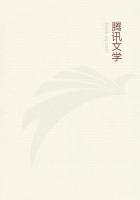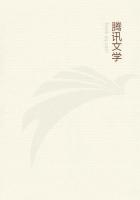To J. Evelyn, Esquire.
I never had any other desire so strong, and so like to covetousness, as that one which I have had always, that I might be master at last of a small house and large garden, with very moderate conveniences joined to them, and there dedicate the remainder of my life only to the culture of them and the study of nature.
And there (with no design beyond my wall) whole and entire to lie, In no unactive ease, and no unglorious poverty.
Or, as Virgil has said, shorter and better for me, that I might there studiis florere ignobilis otii, though I could wish that he had rather said Nobilis otii when he spoke of his own. But several accidents of my ill fortune have disappointed me hitherto, and do still, of that felicity; for though I have made the first and hardest step to it, by abandoning all ambitions and hopes in this world, and by retiring from the noise of all business and almost company, yet I stick still in the inn of a hired house and garden, among weeds and rubbish, and without that pleasantest work of human industry--the improvement of something which we call (not very properly, but yet we call) our own. I am gone out from Sodom, but I am not arrived at my little Zoar. "Oh, let me escape thither (is it not a little one!), and my soul shall live." I do not look back yet; but I have been forced to stop and make too many halts. You may wonder, sir (for this seems a little too extravagant and Pindarical for prose) what I mean by all this preface. It is to let you know, that though I have missed, like a chemist, my great end, yet I account my afflictions and endeavours well rewarded by something that I have met with by-the-by, which is, that they have produced to me some part in your kindness and esteem; and thereby the honour of having my name so advantageously recommended to posterity by the epistle you are pleased to prefix to the most useful book that has been written in that kind, and which is to last as long as months and years.
Among many other arts and excellencies which you enjoy, I am glad to find this favourite of mine the most predominant, that you choose this for your wife, though you have hundreds of other arts for your concubines; though you know them, and beget sons upon them all (to which you are rich enough to allow great legacies), yet the issue of this seems to be designed by you to the main of the estate; you have taken most pleasure in it, and bestowed most charges upon its education, and I doubt not to see that book which you are pleased to promise to the world, and of which you have given us a large earnest in your calendar, as accomplished as anything can be expected from an extraordinary wit and no ordinary expenses and a long experience.
I know nobody that possesses more private happiness than you do in your garden, and yet no man who makes his happiness more public by a free communication of the art and knowledge of it to others. All that I myself am able yet to do is only to recommend to mankind the search of that felicity which you instruct them how to find and to enjoy.
I.
Happy art thou whom God does bless With the full choice of thine own happiness;
And happier yet, because thou'rt blessed With prudence how to choose the best.
In books and gardens thou hast placed aright, - Things which thou well dost understand, And both dost make with thy laborious hand - Thy noble, innocent delight, And in thy virtuous wife, where thou again dost meet Both pleasures more refined and sweet:
The fairest garden in her looks, And in her mind the wisest books.
Oh! who would change these soft, yet solid joys, For empty shows and senseless noise, And all which rank ambition breeds, Which seem such beauteous flowers, and are such poisonous weeds!
II.
When God did man to his own likeness make, As much as clay, though of the purest kind By the Great Potter's art refined, Could the Divine impression take, He thought it fit to place him where A kind of heaven, too, did appear, As far as earth could such a likeness bear.
That Man no happiness might want, Which earth to her first master could afford, He did a garden for him plant By the quick hand of his omnipotent word, As the chief help and joy of human life, He gave him the first gift; first, even, before a wife.
III.
For God, the universal architect, 'T had been as easy to erect A Louvre, or Escurial, or a tower That might with heaven communication hold, As Babel vainly thought to do of old.
He wanted not the skill or power, In the world's fabric those were shown, And the materials were all his own.
But well he knew what place would best agree With innocence and with felicity;
And we elsewhere still seek for them in vain.
If any part of either yet remain, If any part of either we expect, This may our judgment in the search direct;
God the first garden made, and the first city, Cain.
IV.
Oh, blessed shades! Oh, gentle, cool retreat From all the immoderate heat, In which the frantic world does burn and sweat!
This does the lion-star, Ambition's rage;
This Avarice, the dog-star's thirst assuage;
Everywhere else their fatal power we see, They make and rule man's wretched destiny;
They neither set nor disappear, But tyrannise o'er all the year;
Whilst we ne'er feel their flame or influence here.
The birds that dance from bough to bough, And sing above in every tree, Are not from fears and cares more free, Than we who lie, or sit, or walk below, And should by right be singers too.
What prince's choir of music can excel That which within this shade does dwell, To which we nothing pay or give - They, like all other poets, live Without reward or thanks for their obliging pains.
'Tis well if they become not prey.
The whistling winds add their less artful strains, And a grave base the murmuring fountains play.
Nature does all this harmony bestow;
But to our plants, art's music too, The pipe, theorbo, and guitar we owe;
The lute itself, which once was green and mute, When Orpheus struck the inspired lute, The trees danced round, and understood By sympathy the voice of wood.
V.














